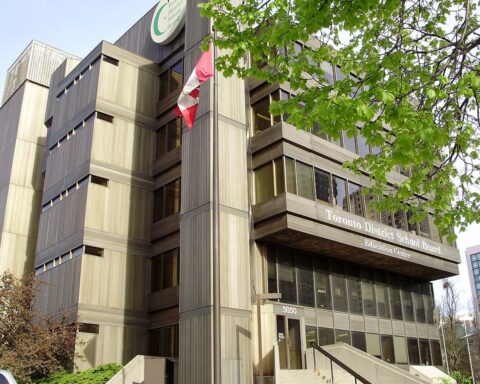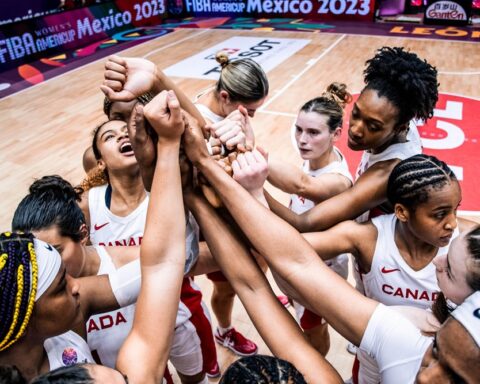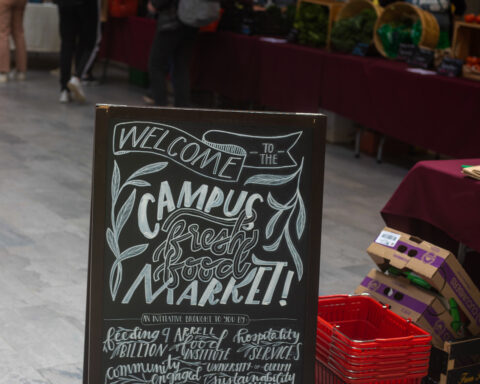Leaders from Canada’s ethnic community are coming together to urge Canadian Radio-television and Telecommunications Commission (CRTC) to suspend consideration of all further applications from Rogers Communications Inc. unless the media giant restores multilingual newscasts at OMNI TV.
Calling the recent OMNI television cuts “systematic dismantling of multilingual programming,” several leaders from diverse communities hosted a news conference Tuesday to voice their concerns and ask the federal government and CRTC to strengthen their commitment to multilingual broadcasting.
“South Asian language-specific programming has provided a strong voice to the growing number of racialized communities in Canada, and often focuses on important Canadian stories that are not covered in the mainstream media.” – Deepa Mattoo, South Asian Legal Clinic of Ontario
One of the organizers, also a long-time OMNI TV viewer and contributor, Tam Goossen, reminisced on her past experience working as a news commentator back in late ’70s when the station just established its multicultural programming.
“It was a privilege to explain a public policy document called ‘The Royal Commission on Learning’ in Cantonese on OMNI to the community,” said Goossen, who is also a member of the Ontario Press Council. “So for me, OMNI has been able to develop a very unique multilingual broadcast model. Rogers betrayed the public trust that has been given to them.”
Deepa Mattoo, lawyer at the South Asian Legal Clinic of Ontario, indicated how important language-specific media is to many immigrant families in the South Asian community.
“Rogers and OMNI have been granted the privilege to broadcast in Canada by CRTC. They have promised as a condition that they would meet their requirements to serve diverse communities across Canada. This is not about charity. This is a fundamental agreement that they have laid bare.”- Dr. Joseph Wong, Chinese Canadian National Council
“South Asian language-specific programming has provided a strong voice to the growing number of racialized communities in Canada, and often focuses on important Canadian stories that are not covered in the mainstream media,” said Mattoo at the news conference, adding that issues such as foreign trained workers, visa situations for families and health issues specific to the communities were often covered in depth by ethnic media.
Holding Rogers Accountable
This is the second major job cut Rogers has made to OMNI TV. Back in May 2013, Rogers eliminated OMNI’s English-language South Asian news, Portuguese news and Diversity Programming affecting 21 shows in 12 languages.
Two year later, just earlier this month, Rogers slashed 110 positions mainly impacting OMNI TV’s newscasts. One big change that audiences will notice is that its daily multicultural newscasts will be substituted into current affairs shows that will spend more on airtime, but won’t include original reporting. Punjabi, Mandarin, Cantonese and Italian language newscasts were among those eliminated.
“Rogers and OMNI have been granted the privilege to broadcast in Canada by CRTC,” said Dr. Joseph Wong, founding member of the Chinese Canadian National Council. “They have promised as a condition that they would meet their requirements to serve diverse communities across Canada. This is not about charity. This is a fundamental agreement that they have laid bare.”
Wong stressed: “We are asking the federal government and the CRTC to make sure that Rogers continues to serve Canada’s diverse communities and does not continue to systematically dismantle an important part of Canada’s multicultural broadcasting heritage.”
Campione urged all media, especially ethnic media, to spread the outcry wide and loud to save OMNI TV, asking community leaders to all come together, call their MPP and express their concern in order to bring the programming back.
In an open letter faxed to the CRTC, community leaders asked the commission to suspend consideration of all further applications from Rogers unless it restores OMNI news broadcasting without diminishing the quality of its programming or service delivery. The letter also asked that Rogers adequately funds OMNI in-house productions and restores the station’s dedicated sales and marketing division to its full capacity.
Rogers Media president Keith Pelley told the CRTC in a presentation last year that OMNI was in a “financial crisis,” as its ad revenues have plunged from $80 million in 2011 to $35 million in 2014. Meanwhile, Colette Watson, Rogers vice president of television and operations said in an interview with the Globe and Mail that OMNI news broadcasts cost $9 million to produce last year, but brought in only about $3.9 million.
The open letter argues that Pelley, who negotiated the $5.23 billion agreement for Rogers to acquire Hockey Night in Canada, assured the CRTC that news broadcasting would not be impacted, all the while knowing that the OMNI newscasts and news staff would be gone in less than a year’s time.
“No news is bad news,” said Dominic Campione, president of Canadian Ethnocultural Council, in his open letter emailed to Guy Laurence, the president and chief executive officer of Rogers.
Campione urged all media, especially ethnic media, to spread the outcry wide and loud to save OMNI TV, asking community leaders to all come together, call their MPP and express their concern in order to bring the programming back.
Not the First Time Rogers’ Cuts Have Caused Concern
When asked if the community leaders’ previous attempts to address the CRTC on Rogers’ job cuts to OMNI in 2013 had received any response from Canada’s broadcast licensing body, Campione assured that this time their voice will be heard.
What happened after the 2013 job cuts was that Rogers had its licence reviewed early in April 2014 and then renewed by the CRTC for only two years, versus the regular five-year renewal cycle it proposed.
On the public document the CRTC released on July 31 last year, it addressed a complaint against Rogers regarding the job cuts in 2013. It stated that the CRTC expressed “concern over the extent of the programming changes, the impact of the changes on the communities served by the stations, and the lack of information provided by Rogers Broadcasting Limited (RBL) in regard to the level of consultation that may have taken place with the community advisory councils for its various stations about the upcoming programming cuts.”
The document went on to state: “Although the Commission found RBL to be in compliance with its conditions of licence, it requested that it submit licence renewal applications for the OMNI stations early in order to allow a review of the stations’ programming issues.”
Shan is a photojournalist and event photographer based in Toronto with more than a decade of experience. From Beijing Olympic Games to The Dalai Lama in Exile, she has covered a wide range of editorial assignments.





